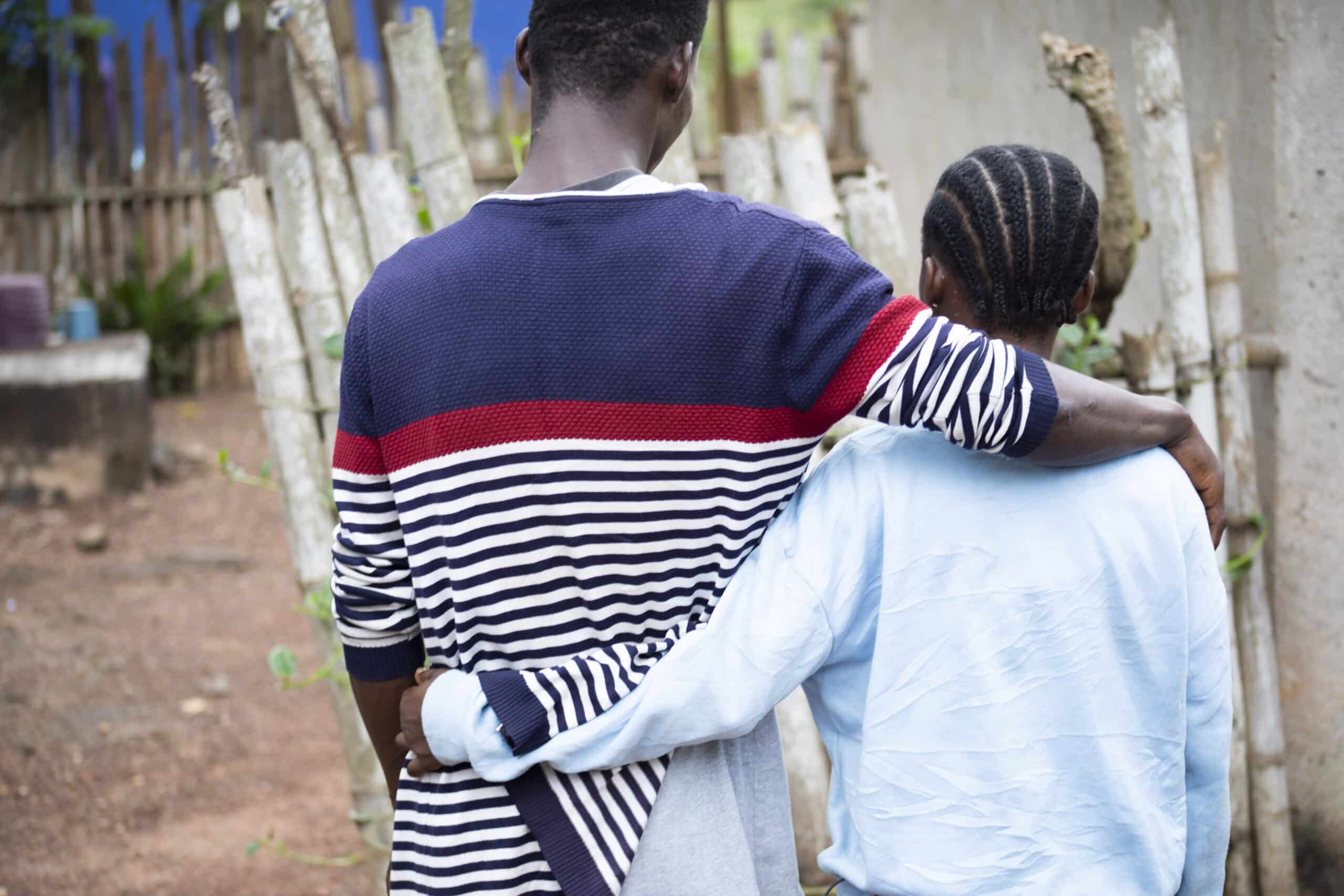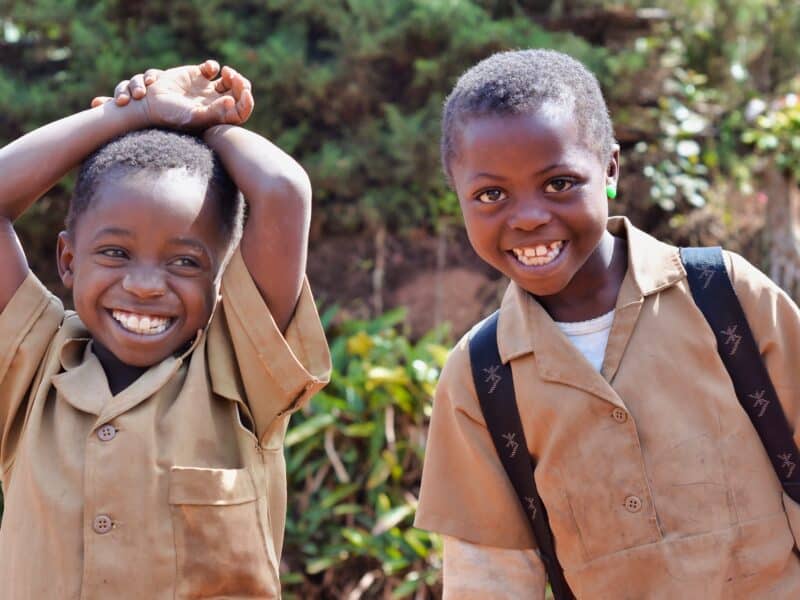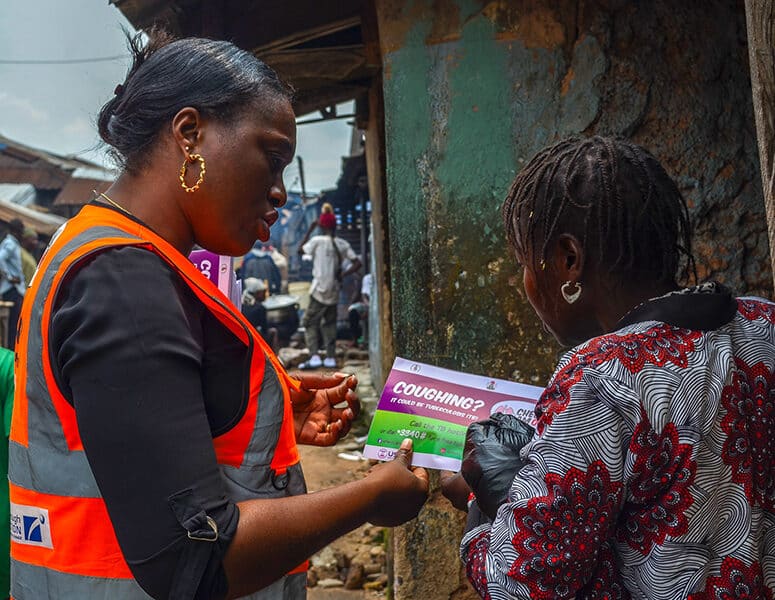Chantal was visiting some clients in the village of Anno in southern Côte d’Ivoire. She’s a peer navigator who implements community-level HIV activities under the Johns Hopkins Center for Communication Programs-led Breakthrough ACTION project.
As she made her way around the village, Chantal noticed a woman in her early 20s walking down the street, weak and in obvious pain. Chantal introduced herself and asked the woman if she could take her to her home to conduct a few screening tests. “My sister, I’m suffering too much, if you can finally find the evil in my life, I’ll be happy,” the woman named Natasha told her.
Months earlier, Natasha had fallen sick. She had lesions all over her body and was very weak. Although she had visited a renowned traditional healer who diagnosed Natasha with acute malaria and general tiredness and treated those symptoms. Unfortunately, she continued to get worse. Within eight weeks, she was no longer able to feed herself.
HIV is an issue in the Lagunes region where Natasha lives. The estimated HIV prevalence there is around 3 percent among 15 to 49-year-olds – compared to an estimated 0.7 percent globally – and the percentage of women and men aged 15-49 who know their HIV status remains low (45 percent and 26 percent, respectively).
Since 2003, USAID has been supporting the government of Côte d’Ivoire through the President’s Emergency Plan for AIDS Relief (PEPFAR) to achieve three goals: 95 percent of the people who are living with HIV know their HIV status, 95 percent of the people who know that they are living with HIV are on antiretroviral treatment, and 95 percent of people who are on treatment are virally suppressed.
Chantal weighed Natasha, took her blood pressure, and screened her for multiple illnesses. But she suspected Natasha had HIV. When it came time for the HIV test, Chantal provided Natasha the appropriate counseling and the test result came back positive. At first Natasha was in disbelief, but with Chantal’s encouragement and support, she agreed to go to the village health center to enroll in treatment, telling Chantal, “If you say that medication can help me stay in great shape, I’m going to try it, because I’m really too tired.”
Chantal continued to follow up with Natasha as she began taking daily antiretroviral medications (ARVs). They discussed adherence as well as the importance of disclosure.
Natasha’s husband of three years, Richard, had been away working at a job site during this time and Natasha had not yet shared her status with him.
“I was scared, but I was surprised by his reaction,” Natasha says. “He was calm. He asked questions to understand, and I told him that I had been told that the treatment could allow me to live a normal life.”
Said Richard: “I was very happy to know that she was doing better, it was a great gift for me. I thank God that her path crossed that of the peer navigator.”
With Chantal’s support and counseling, Richard also agreed to be tested for HIV. His results were negative. With this information, Richard received counseling and began Pre-exposure Prophylaxis or PrEP, a daily medication regime meant to prevent HIV infection. With Richard taking PrEP and Natasha taking ARVs, they are supporting each other to stay healthy.
After three weeks on ARVs, Natasha was able to return to her normal life.
Under the Breakthrough ACTION project, 643 Ivorians living with HIV have been identified in the past year and 613 have enrolled in antiretroviral therapy.
Dec. 1 marks the 35th annual World AIDS Day, which is meant to be a reminder of the global struggle to end HIV-related stigma, an opportunity to honor those who have been lost, and a rallying cry to commit to working toward a day when HIV is no longer a public health threat.





